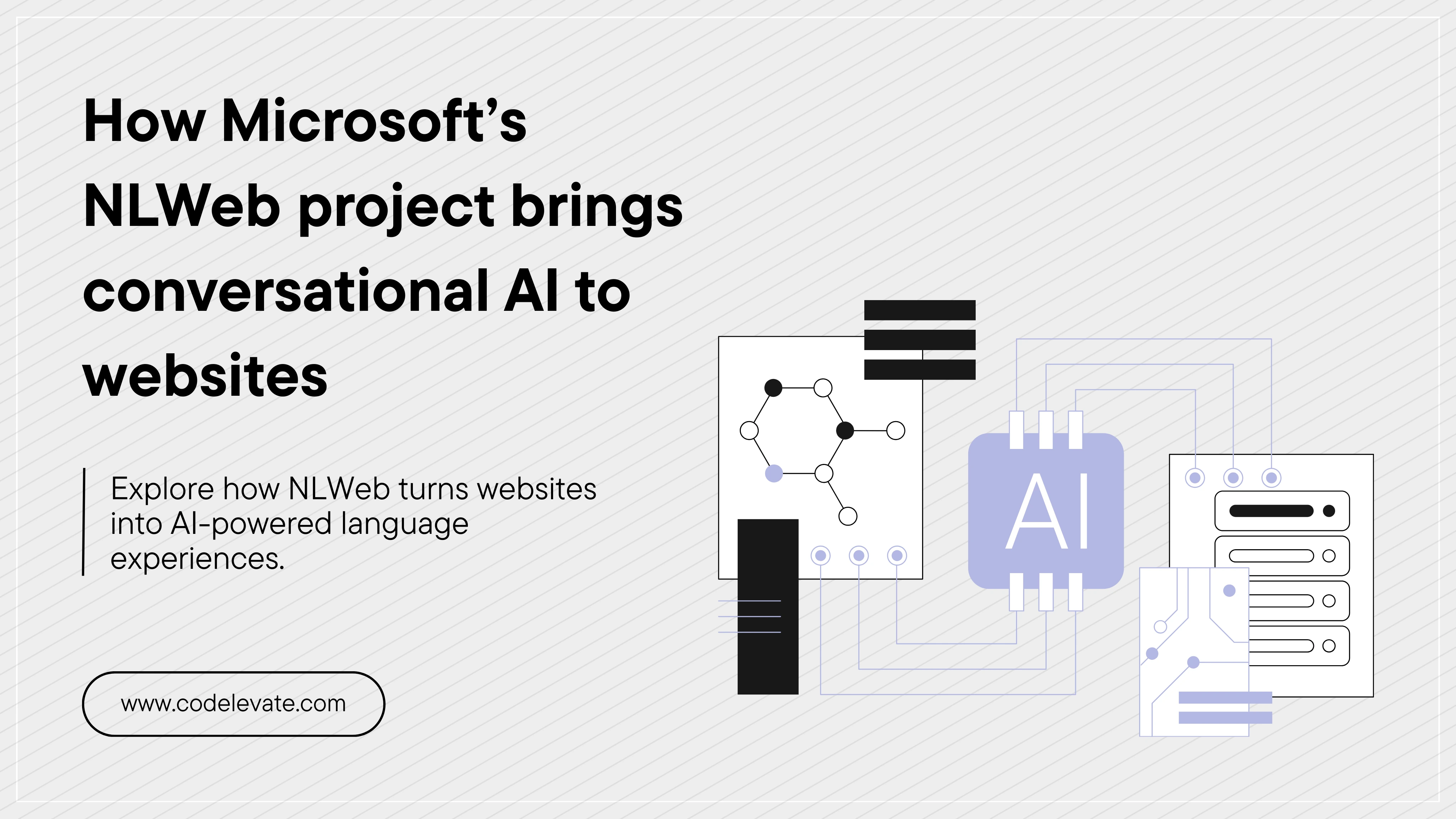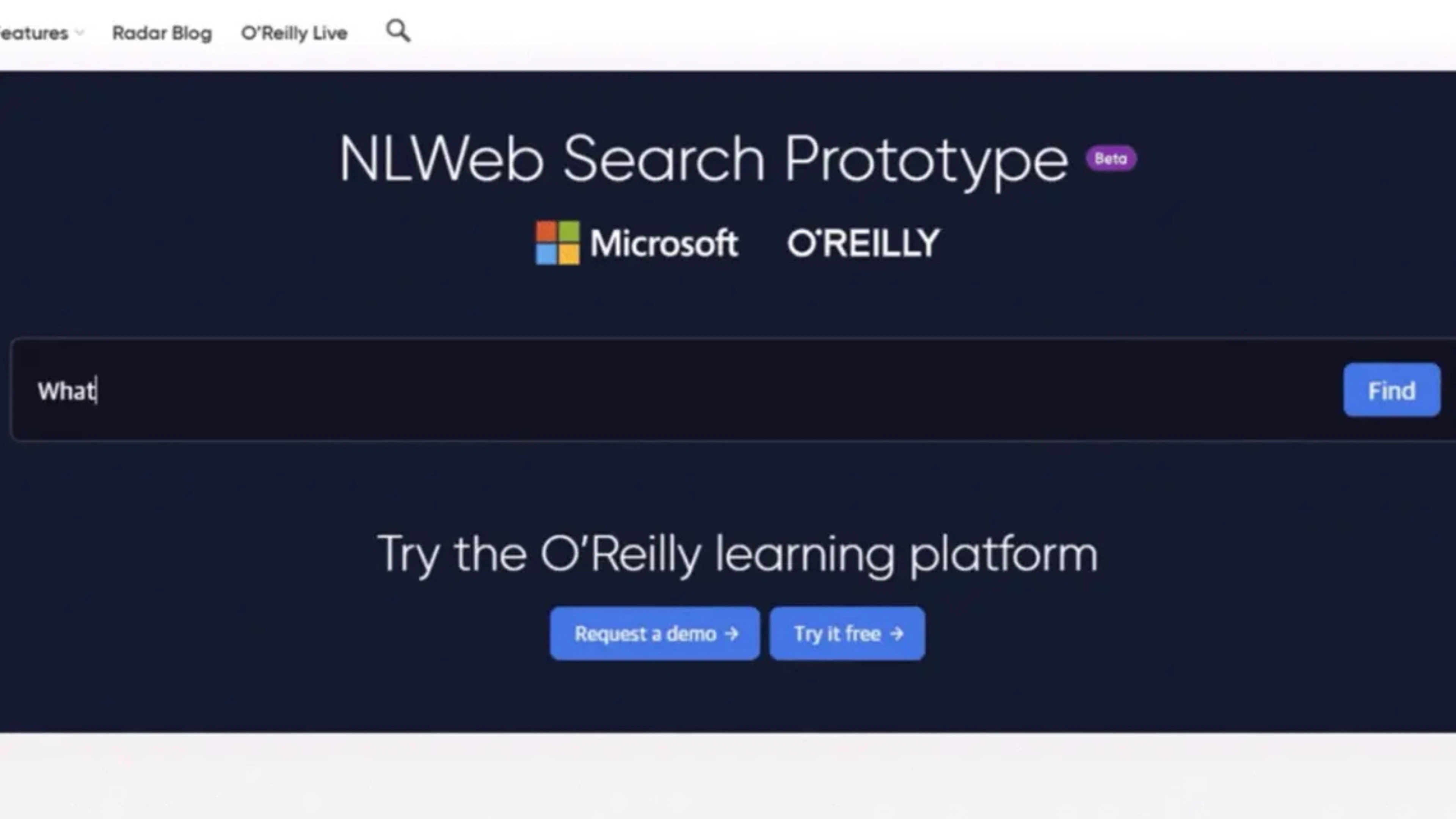How Microsoft’s NLWeb project brings conversational AI to websites
Introducing NLWeb: Microsoft’s new open project that transforms any website into an AI-powered experience using natural language. Discover how this game-changing tech works—and how you can start building smarter sites today.
What is NLWeb?
Imagine landing on a website and instead of clicking through a maze of links or typing in awkward keywords, you just ask it a question—like, “What are the top hiking trails near Seattle?”—and boom, it answers you. That’s exactly what Microsoft’s latest open project, NLWeb, is all about.
So, what is it exactly?
It stands for Natural Language Web, and it’s Microsoft’s new way of bringing AI-powered, conversational features directly into websites. In plain terms: NLWeb lets websites understand what you’re asking in regular human language and respond intelligently. This isn’t just another search bar upgrade. NLWeb transforms how users interact with online content. Instead of clicking around or scrolling endlessly, visitors can simply type a question or request—just like they would to a voice assistant—and get helpful, accurate answers instantly. Whether it’s finding a product, learning about a service, or triggering a specific action, users get what they need faster and more naturally.
The best part? NLWeb is open-source. That means developers and site owners can start experimenting with it right now. You can turn your site from static to smart with just a bit of work—and give users an experience that feels less like browsing and more like having a conversation. At its heart, NLWeb is about making the web feel more human. It takes the power of today’s AI and puts it into the hands of developers to create sites that are easier to use, more accessible, and way more intuitive.
We’re excited to see how this tech grows—and how it helps shape the next generation of web experiences. Let's dive in!

Why is NLWeb built?
The internet has changed so much over the last few decades—but the way we interact with websites hasn’t kept pace. Despite powerful search engines and intelligent voice assistants, most websites still rely on rigid navigation structures and keyword-based search boxes.
Microsoft built NLWeb with a vision of a more conversational web—where a restaurant site can understand a question like “What’s the best vegan dish you serve on Friday?” and not just show a static menu. Or a local government website can help a resident figure out “How do I register to vote in my county?” without sending them into a maze of links. By making conversational interfaces a first-class feature of the web, NLWeb helps both users and publishers experience the full potential of AI on their own terms.
How does it work?
Turning web data into natural language conversations
NLWeb connects existing website data to a natural language model. It works by taking advantage of common formats like Schema.org, RSS, JSON, and other structured content most websites already use.
This structured data acts as the foundation, and NLWeb layers it with intelligence from large language models (LLMs), making it possible for the site to understand and respond in context.
Let’s say your website already has a blog feed in RSS and a product catalog marked up with Schema.org. NLWeb can use that to allow visitors to ask questions like:
- “Do you have any recent posts on sustainable travel?”
- “Which backpacks are water-resistant and under $100?”
The system pulls the right answers based on your existing data and the understanding of the AI model.
A server, a protocol, and an interface
Every instance of NLWeb is also a Model Context Protocol (MCP) server. That might sound technical, but the takeaway is this: your website becomes discoverable by AI agents, apps, and other participants in the new “agentic web.”
You stay in control. You decide what’s shared, how it’s presented, and whether your content is available to others.
In the background, NLWeb runs a lightweight server that powers this interface. The project includes tools to connect with leading AI models, supports vector databases, and offers a frontend that makes it easy to query via a web UI.

What makes NLWeb unique?
It’s open and flexible
NLWeb is completely open-source. Whether you’re a small blogger, a media company, or an enterprise platform, you can use NLWeb with the model and data format that suits you best.
There’s no lock-in. No specific model or platform you have to use. It’s designed to work with the tools you already rely on.
It’s built for the agentic web
The web is evolving—fast. Intelligent agents are becoming part of how we search, learn, and get things done online. NLWeb prepares your site for this future.
Just like HTML let websites be read by browsers, NLWeb lets your content be understood by AI. It’s not just about chat—it’s about making your site part of an intelligent ecosystem where users and agents can interact seamlessly.
It keeps you in the driver’s seat
NLWeb is built with publishers in mind. You decide what content is available, how it’s presented, and how people interact with it.
You’re not giving up control to a third party. You’re enhancing your own site with the power of natural language and AI.
Who’s behind NLWeb?
NLWeb was created by R.V. Guha, a Technical Fellow at Microsoft, and one of the original minds behind key web standards like RDF, RSS, and Schema.org. He’s joined by a growing team of engineers, open-source contributors, and AI experts who believe in building an open, more accessible web.
The philosophy is simple: just as past standards made the web what it is today, NLWeb can do the same for the AI-powered web of tomorrow.
If you need further information about how to make the best use of NLWeb, watch this video:
Source: YouTube
Early adopters and partners
Some incredible organizations are already using NLWeb. These early adopters helped shape the project by testing it, suggesting improvements, and building real-world use cases.
Some of the first partners include:
- Chicago Public Media – enhancing discoverability of local journalism
- Common Sense Media – providing rich, conversational access to reviews and resources for families
- Tripadvisor – making travel planning easier with AI-driven queries
- Eventbrite – letting users find events in natural language
- O’Reilly Media – enabling knowledge exploration in their vast tech library
Others include Hearst (Delish), Shopify, Snowflake, Allrecipes, Serious Eats, and more. Together, these partners are proving that conversational web experiences are not just possible—they’re better.
What you can do with NLWeb
Enhance your site’s usability
No more struggling with search bars or FAQ pages. With NLWeb, your visitors can simply ask. Whether it’s finding a product, understanding a policy, or locating a resource, natural language makes it all easier.
Participate in the next generation web
As the agentic web grows, your site can become part of a smarter, more connected internet. With NLWeb, you don’t need to wait on search engines to discover your content—you can publish it in a way that agents can immediately understand and use.
Maintain ownership of your content
You keep control. NLWeb doesn’t take your data or send it away. Everything runs on your own server, using your own setup, with your own rules. It’s your website—enhanced, not replaced.
How to get started
Diving into NLWeb is easy. You don’t need to be a developer to understand the basics.
Here’s what’s available:
- Code Repository: The NLWeb GitHub contains the core server code and tools for integration
- Documentation: Step-by-step guides for adding your data, connecting models, and customizing behavior
- Starter Templates: Prebuilt connectors and UI templates to help you get going fast
- Community Support: Join GitHub Discussions, ask questions, and share your implementations
Whether you’re building a personal blog or managing a global media platform, NLWeb is designed to meet you where you are.
What’s next?
Future updates of the project will include:
- More connectors for LLMs and vector databases
- Richer UI components for embedding on your site
- Improved documentation and tutorials
- Expanded tools for mobile and multi-modal interfaces
Conclusion
The internet was always meant to be open, and NLWeb brings that vision into the AI era. With just a bit of integration, any website can become a smart, responsive space where people interact naturally—no complex interfaces or technical know-how needed. Whether you’re a developer building the next big thing, or just someone who wants a better online experience, NLWeb is the tool for you. It’s free, it’s open-source, and it’s available now. NLWeb invites us to create digital spaces that feel more like conversations than code. This is more than just a new tool—it’s a shift in how we think about the web.
Want to launch real-world AI solutions?
Let's have a chat and discuss how to set your company for success!


.png)
.png)
.png)
.svg)




